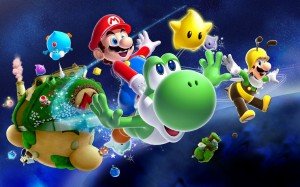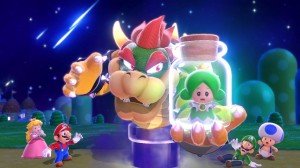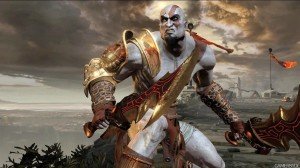There’s a question I often hear posed by many gamers and it goes something like this. ”Why is it that Mario games always seem to get a free pass, when it comes to sequels and rehashes. Yet game franchises like Assassins creed, God of War, Halo and the like, get criticized and sometimes even marked down for it?.” Well, I have a theory for why that seems to be the case, as much as this may seem to be a double standard, and I’m sure many will argue that it is, there is a fundamental difference between games like Mario and Assassins Creed.
Mario, in my opinion, is very much like a Children’s cartoon. Take the classic cartoon Tom and Jerry for example, we would all tune in expecting a certain repetitive premise each week, but with some minor variations to the plot here and there to keep the show fresh and interesting. However, the main premise was almost always the same, Tom would concoct a scheme to catch Jerry, and Jerry would always foil Tom’s plans.
Mario games are, for better or worse, a video game cartoon with a mascot as popular and versatile as Mickey Mouse, if not more so. The games like New Super Mario Bros Wii U, Super Mario Sunshine, Super Mario Galaxy and Mario Kart all exist as an attempt to revitalize an aging franchise, or give us a peak at what it would be like to take a series in a new and interesting direction.
Now most sequels of the games I’ve mentioned above don’t vary much from the games that preceded them, but I believe that to be the point. No matter how much you may dislike Mario games, they are a near perfect merger of game design and nostalgia. New gamers will enjoy them because they are fun and accessible, while older gamers will enjoy them due to nostalgia and familiarity. Now that’s not to say older gamers wont find them just as fun due to their game design, it’s just that they are more likely to appreciate Mario games due to the familiarity coupled with the many variations each title offers. Basically, Mario games are so popular because they offer us a fun, repetitive and familiar enjoyment, that’s similar to the kind we would find in a long running cartoon series.
On the other hand, the problems faced by many games like Assassins creed, God of War, Halo and other such video game franchises these days, is that the subsequent games are expected to move the franchise forward, while remaining faithful to the previous games. All this while doing enough to justify themselves as stand alone titles. These “sequels” also bare the unfair, but very essential burden of being judged as to whether or not they are an improvement over the previous installments.
When games like Assassins Creed 3, GTA IV and Batman: Arkham Origins were released, they all came under some scrutiny. With Assassins Creed 3, it was mostly due to the choice of location being 18th century America, before, during and after the American Revolution. The smaller, scattered houses and monuments were certainly a far cry from the towering steeple tops of ancient Italy seen in the games that came before it.
God of War on the other hand, is a franchise that I consider to have pulled of the idea of sequels masterfully. The first game introduces us to the shamed Spartan Kratos, tricked by the God of War, Aries. Kratos sets out on a blood-drenched quest for revenge against the God who wronged him.
The sequel then builds on the premise by furthering the extent to which Kratos is betrayed by the Gods, while also fleshing out Kratos as a character, and the added gameplay mechanics and improved combat helped to escalate the game above that of the original.
The final game in the God of War trilogy brought the story to an epic conclusion, firmly closing the door on Kratos’s journey. This takes a lot of guts to do for any developer, but because they were able to provide a concise trilogy (and some decent spin offs) the experience didn’t feel tired or over done.
Far too many games franchises these days try to milk a franchise for all it’s worth. By the time the series is nearing its end, many gamers have become bored and disillusioned with the overall repetitiveness of many games that exist as padding, at least until an official sequel is announced. When our hero (or heroine) “finish the fight” or essentially complete their journey, adding any more to the canon can make the experience feel cheapened, more so if it feels as if that the only reason a game exists is for the developers to milk some extra cash before dropping the IP completely.
Games like Mario often get a free pass because they are essentially like a cartoon, they often have a single premise with a story and gameplay mechanics that are constantly being, revised, restructured and rebuilt all in order to keep the series fresh. On the other hand, games like Assassins Creed, God of War and Halo, all follow the exploits of a protagonist along their journey toward the inevitable end, the games they appear in are expected to constantly reinvent themselves all while keeping true to the original formula, and adding enough new content and gameplay advances in order to prove that the franchise is still relevant.






